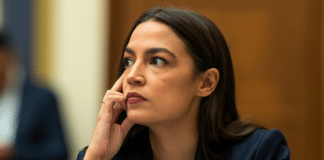When Congress returns from its Labor Day recess, it will immediately face high-stakes decisions on Washington, D.C.’s future. At the center is President Donald Trump’s declaration of a state of emergency in the district on August 11—dubbed “Liberation Day”—which launched a sweeping law enforcement surge that has produced dramatic reductions in violent crime.
Under the D.C. Home Rule Act, a presidentially declared emergency in the district lasts only 30 days unless extended by Congress. Trump’s emergency powers are set to expire on September 11, unless lawmakers act swiftly to authorize an extension and consider deeper reforms.
The move has ignited a legislative battle over the capital’s governance and safety. In February, Senator Mike Lee (R-Utah) and Representative Andy Ogles (R-Tenn.) introduced the BOWSER Act—named after D.C.’s Democrat Mayor Muriel Bowser—calling for Congress to reclaim oversight of the city. The legislation, currently in committee, cites the city’s “failure to prevent violent crime, corruption, and voting by non-citizens” as reasons for federal intervention.
Ogles sharply criticized Bowser’s progressive agenda: “Washington is now known for its homicides, rapes, drug overdoses, violence, theft, and homelessness. Bowser and her corrupt Washington City Council are incapable of managing the city.”
The Home Rule Act of 1973 granted limited self-governance to D.C., but the Constitution gives Congress ultimate authority over the federal district. Trump’s crackdown—and its early success—has renewed calls among Republicans to revisit and potentially revoke that arrangement.
Bowser, while critical of federal overreach, acknowledged Thursday that Trump’s law enforcement surge has significantly improved public safety. Carjackings have dropped by 87%, robberies by 46%, and violent crime by 22% since the National Guard and federal officers were deployed. The D.C. Police Union reports an 8% drop in total crime.
Despite those numbers, Democrats remain fiercely opposed. Senator Chris Van Hollen (D-Md.) labeled the federal presence an “authoritarian takeover,” and accused Trump of draining law enforcement resources from other national priorities. He and other Democrats continue to push for D.C. statehood, framing the Republican-led oversight effort as an assault on political representation.
In January, 41 Senate Democrats introduced legislation to grant D.C. full statehood, arguing that its 700,000 residents are denied equal representation in Congress. Both statehood bills remain stalled in committee.
Though 54% of voters support Trump’s crime surge—including 28% of Democrats and 47% of independents, according to a new Harvard CAPS/Harris poll—Republicans face a narrow path forward in Congress. With Democrats unified against ending Home Rule and the GOP holding only a slim House majority, passing Trump’s desired reforms may require significant political negotiation—or a deal with Mayor Bowser.





